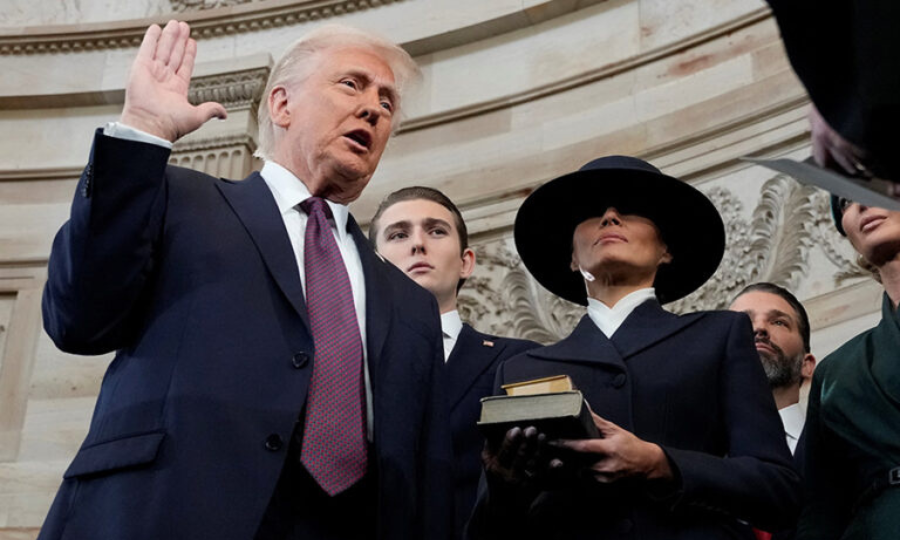
The Twenty-Second Amendment clearly states that no one can be elected president more than twice. But who actually enforces this rule? Recent discussions about the possibility of a third term for President raises important questions about how our Constitution is actually enforced in practice.
Let's walk through a hypothetical scenario to understand the practical challenges of constitutional enforcement. Imagine President Trump decides to run again, with his party controlling Congress. How would this playout?
Getting on the Ballot
The first hurdle would be becoming a party's nominee. Surprisingly, the Twenty-Second Amendment doesn't prevent someone from running or being nominated - it only says they can't be "elected." Political parties can technically nominate whoever they want.
The next step would be getting on state ballots. While some states might try to block this candidate, in the recent Supreme Court decision, Trump v. Anderson, suggests they might decide the states do not have the power to exclude a candidate. In that same case, the Court also stated it preferred nationwide consistency over letting individual states make different decisions about candidate eligibility. Stating it was Congress’ responsibility to decide and enforce his eligibility.
Would a Republican-controlled Congress invalidate their candidate’s nomination? I seriously doubt it.
The Role of Congress
If our hypothetical candidate won the election, the next step would be Congress certifying the results. With their own party in control, Congress might choose to certify the win despite constitutional concerns, arguing they're following "the will of the voters."
The Heart of the Problem
This scenario reveals a fundamental truth about our government: many constitutional limits rely on officials choosing to enforce them. It's like a baseball game where the rules only work because everyone agrees to follow them - there's no magical force that automatically stops someone from running around the bases backward.
What This Means for Democracy
This highlights how our system depends on elected officials putting their constitutional duties ahead of party loyalty. When political parties prioritize winning over following constitutional limits, the safeguards can become surprisingly fragile.
The real protection of constitutional limits doesn't come from courts or legal documents alone - it comes from voters and officials choosing to respect these boundaries, even when it's politically uncomfortable.
Looking Forward
Understanding these dynamics helps us see why protecting democracy requires more than just having good rules - it requires people willing to enforce those rules, even against their own party's interests. This means voters need to support candidates who show they value constitutional principles over party loyalty and political career.
Our dysfunctional election system forces lawmakers to prioritize re-election over tough choices. At Alternative Choice, we're uniting Americans across political lines - conservatives, progressives, libertarians, and independents - to fix this through proven reforms. Together, we can rebuild trust in Congress and strengthen our democracy.
Join us at alternativechoice.net to learn more and take action.
Lorem ipsum dolor sit amet, consectetur adipiscing elit. Suspendisse varius enim in eros elementum tristique. Duis cursus, mi quis viverra.